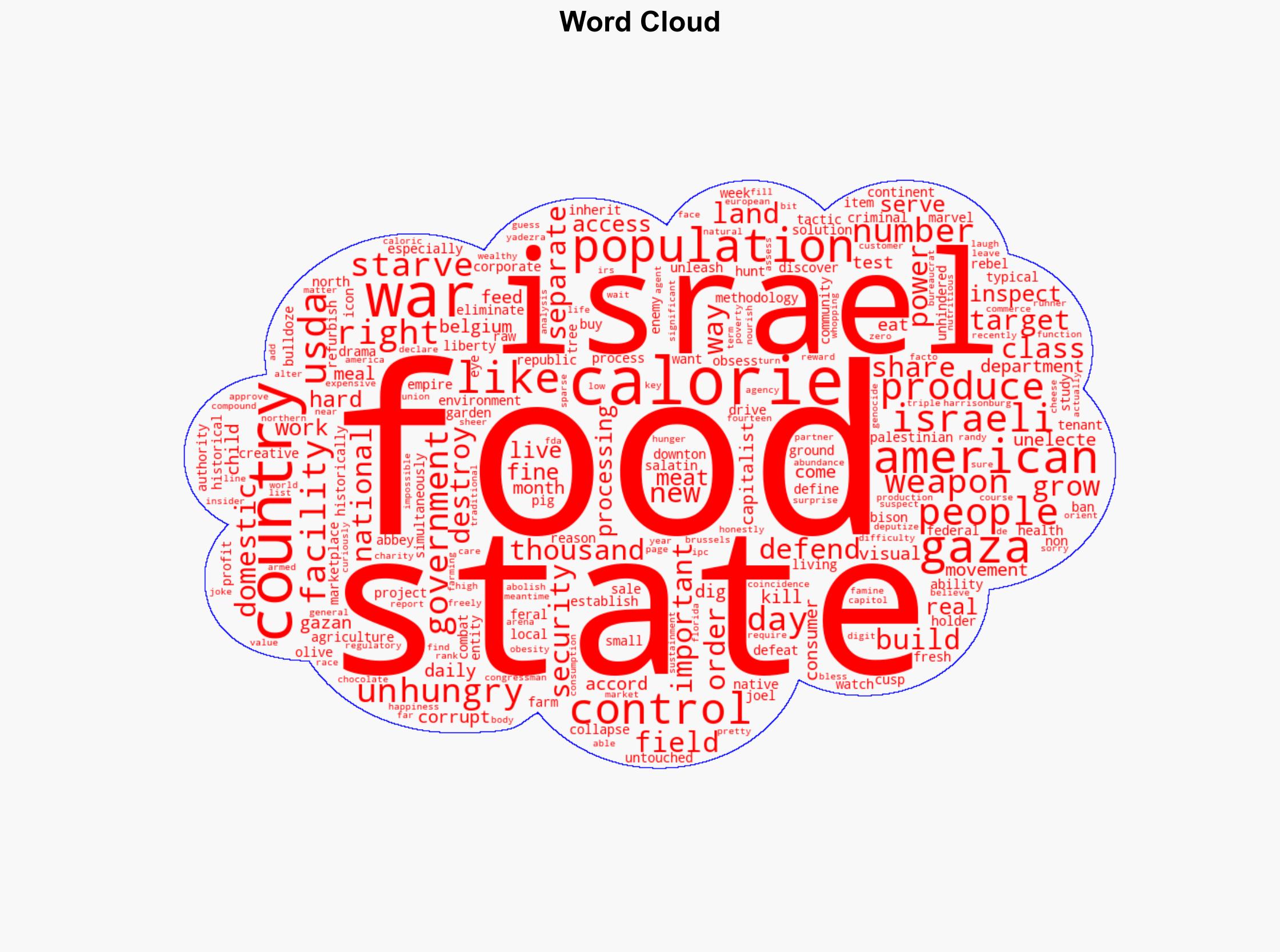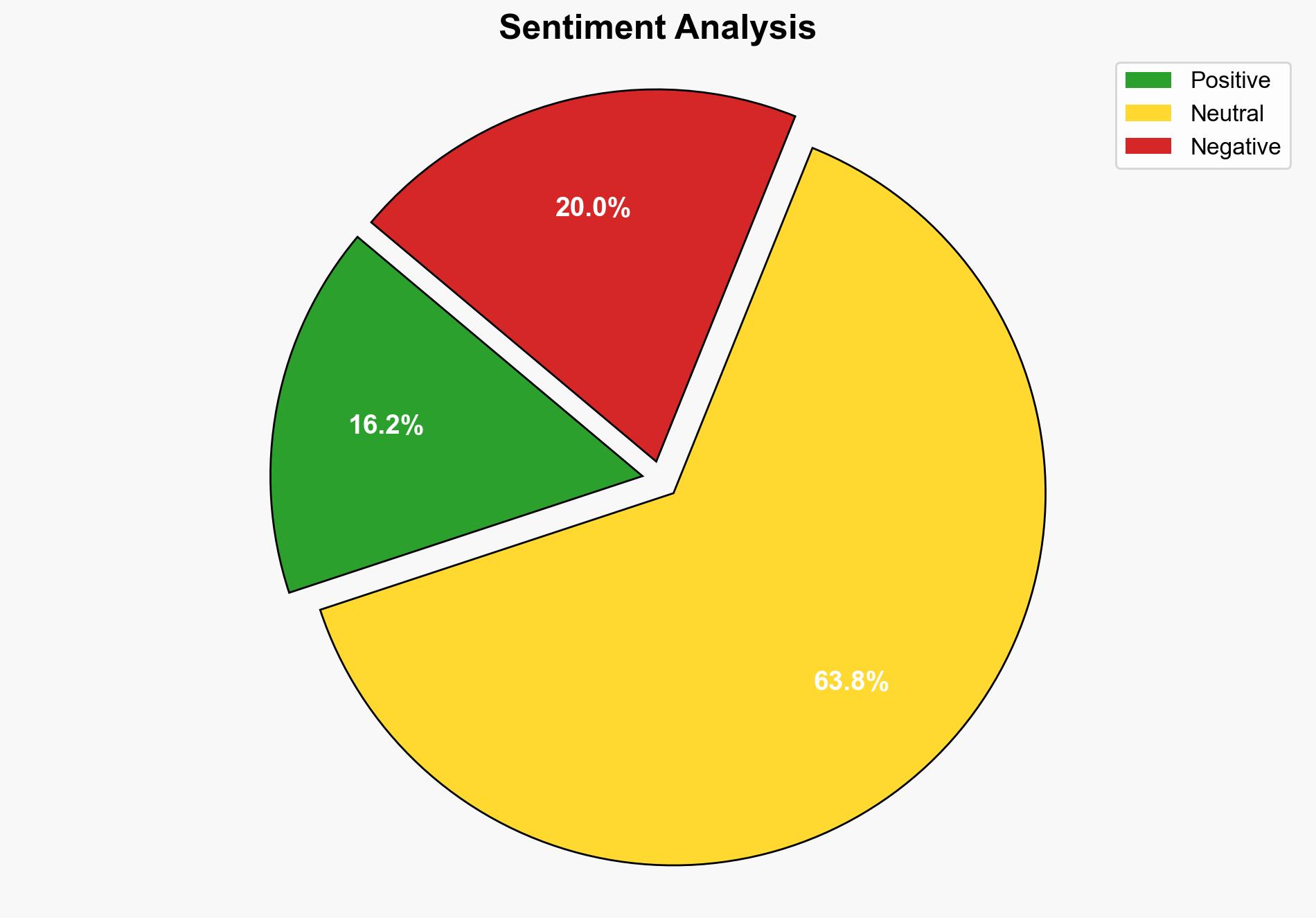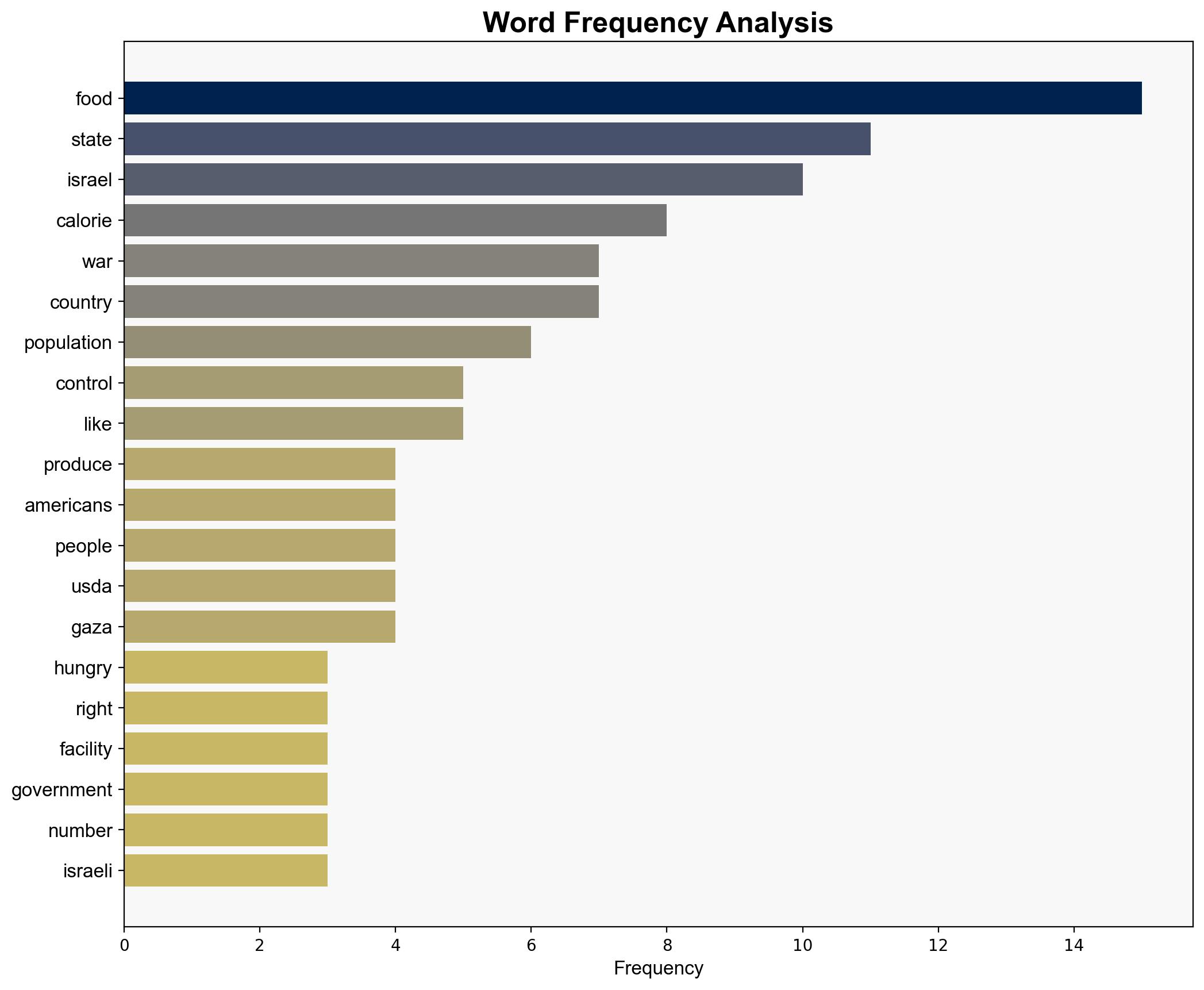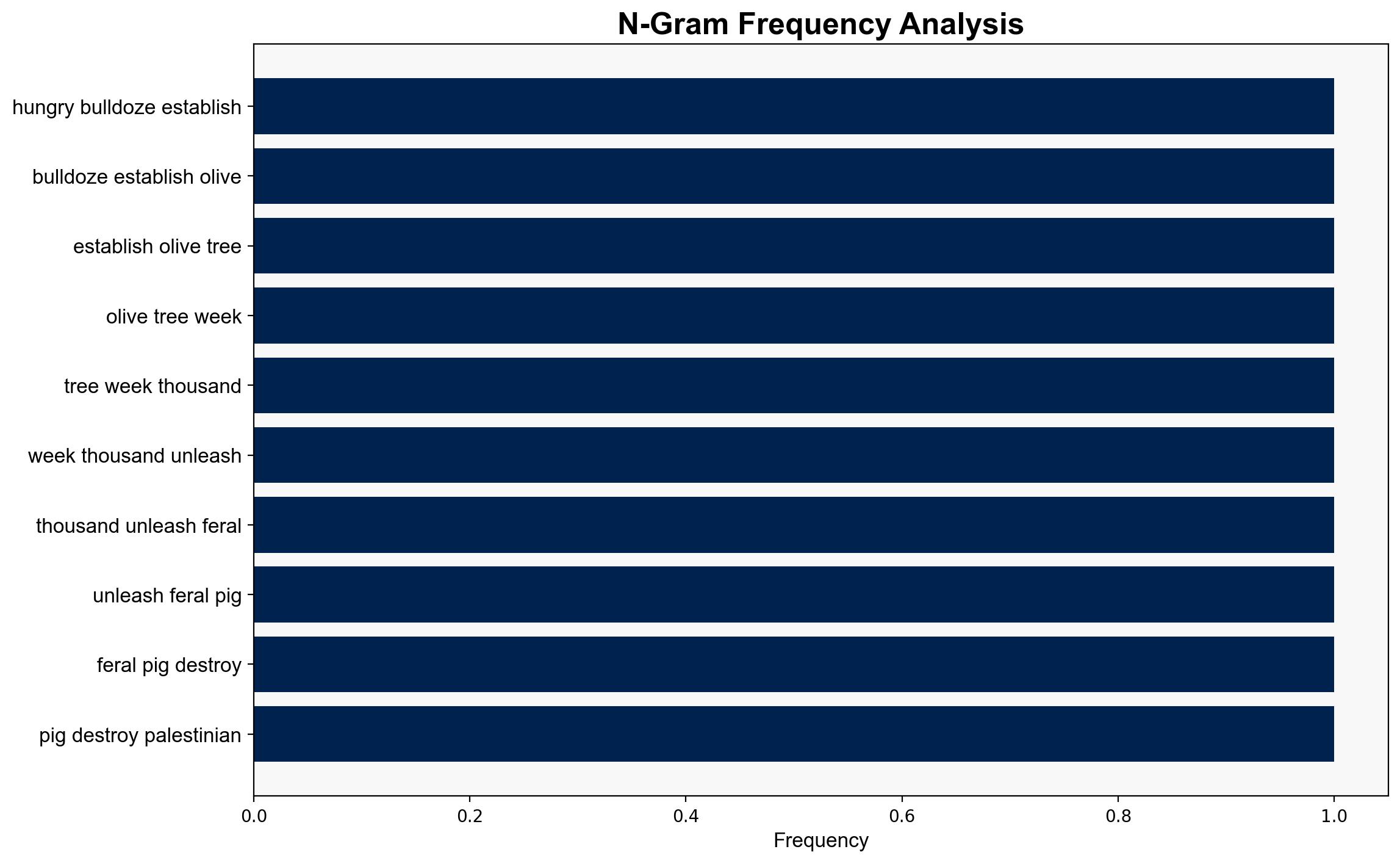Are We Hungry Yet – Activistpost.com
Published on: 2025-09-28
Intelligence Report: Are We Hungry Yet – Activistpost.com
1. BLUF (Bottom Line Up Front)
The most supported hypothesis is that Israel’s agricultural policies in Palestinian territories are part of a broader strategy to exert control over the region, impacting food security as a means of political leverage. Confidence level: Moderate. Recommended action: Engage in diplomatic efforts to address humanitarian concerns and promote sustainable agricultural practices in conflict zones.
2. Competing Hypotheses
1. **Hypothesis A**: Israel’s actions in Palestinian territories, including the destruction of agricultural resources, are strategic measures aimed at weakening Palestinian resistance by undermining food security, thus serving as a tool for political control.
2. **Hypothesis B**: The agricultural disruptions are primarily defensive measures by Israel, intended to protect national security against perceived threats from Palestinian territories, with food security impacts being collateral rather than intentional.
Using ACH 2.0, Hypothesis A is better supported due to the historical context of using food security as a tool for control and the specific targeting of agricultural resources, which aligns with the broader strategic objectives of exerting influence over the region.
3. Key Assumptions and Red Flags
– **Assumptions**: Hypothesis A assumes intentionality in targeting agriculture as a strategic tool, while Hypothesis B assumes defensive motivations. Both rely on the assumption that food security is a significant factor in regional stability.
– **Red Flags**: The source’s potential bias against Israeli policies and lack of corroborative data from neutral sources. The narrative may be influenced by cognitive bias, highlighting the need for independent verification.
– **Missing Data**: Comprehensive data on the actual impact of these policies on Palestinian food security and independent assessments of Israel’s strategic intentions.
4. Implications and Strategic Risks
– **Patterns**: Continued agricultural disruptions could exacerbate humanitarian crises, leading to increased international condemnation and potential sanctions against Israel.
– **Cascading Threats**: Escalation of tensions could lead to broader regional instability, impacting neighboring countries and international relations.
– **Potential Escalation**: If unchecked, these actions could lead to intensified conflict, drawing in regional and global powers, and potentially leading to economic sanctions or military interventions.
5. Recommendations and Outlook
- Engage with international organizations to facilitate dialogue between Israel and Palestinian authorities, focusing on humanitarian relief and sustainable agriculture.
- Monitor regional developments closely to anticipate potential escalations and prepare contingency plans.
- Scenario Projections:
- Best Case: Diplomatic resolutions lead to improved food security and reduced tensions.
- Worst Case: Escalation into broader conflict with severe humanitarian and geopolitical consequences.
- Most Likely: Continued low-level tensions with periodic international diplomatic interventions.
6. Key Individuals and Entities
– Randy Fine (mentioned as a U.S. congressman in the context of calorie consumption analysis)
– Yadezra (Israeli charity involved in food security)
7. Thematic Tags
national security threats, food security, geopolitical strategy, humanitarian impact, regional stability





